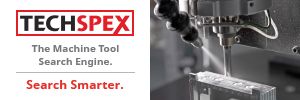
The ZF ProAI, a system that makes use of the NVIDIA DRIVE PX2 artificial intelligence computing platform.

The Intelligent Rolling Chassis—a platform for an electrified vehicle.
Previous
Next
Related:
Automotive Chassis
Related Suppliers
-
NVIDIA
-
ZF Group
Dr. Stefan Sommer, CEO of ZF Friedrichshafen AG (zf.com) emphasizes that the automotive supplier produces a variety of mechatronic components and systems, and that these systems, going forward, need to become even more intelligent than they may currently be, as its OEM customers move toward more automated and autonomous driving. Sommer says, “The mobility of the future will continue to be based on mechanical systems, but equipped with intelligent systems that are comprehensively networked.â€
For example, the company has developed what it calls an “Intelligent Rolling Chassis†(IRC), which combines an axle-integrated electric drive—there are two 40-kW electric motors, each with a single-speed transmission, located near the wheels—and a front axle based on a dual-arm independent suspension design that works with an electromechanical steering system so that there is a steering angle up to 75 degrees. In addition to which there is an electronic control unit (ECU) for the IRC that not only controls the motors and other elements, but also other ZF systems, including braking.
But Sommer and his colleagues realize that there needs to be even more capability, so it has teamed up with NVIDIA (nvidia.com) to develop an artificial-intelligence based system, the first instance of which is called ZF ProAI. It is based on the NVIDIA DRIVE PX 2 platform. This system makes use of multiple sensors and cameras for input, then uses “deep learning†to understand the environment, thereby providing automated driving functionality: the system is capable of comprehending a 360 degree view around a vehicle.
Rather than having multiple processors, each of which is tasked for a limited number of functions, ZF ProAI has the computing power to take on an array of tasks in real time.
ZF is configuring the unit so that over-the-air updating can occur. It will also be able to communicate with other vehicles and intelligent infrastructure (V2X).
The system is being built to meet automotive-grade standards. It will go into series production in 2018. Â








